Solar Maintain
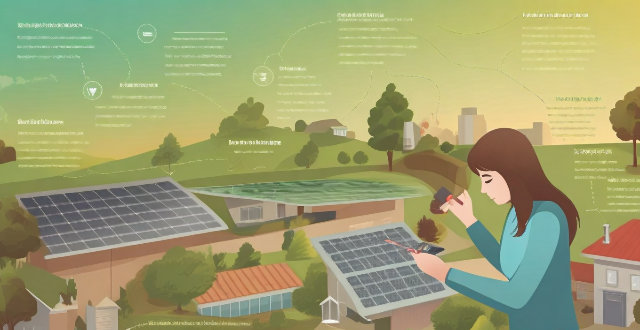
How can I maintain and clean my solar panels for optimal performance ?
The article discusses the importance of maintaining and cleaning solar panels to ensure their optimal performance. It provides a detailed guide on how to keep solar panels in top condition through regular inspection, cleaning, preventative measures, and safety precautions. The guide includes steps for visual inspection, checking for shading, monitoring production levels, dry and wet cleaning methods, using bird repellents and gutter guards, and routine maintenance. It also emphasizes the importance of wearing appropriate safety gear and taking precautions when working on or around solar panels. By following these steps, homeowners can extend the lifespan of their solar panels and maintain their efficiency over time.

How long do solar panels typically last ?
Solar panels are a sustainable and cost-effective way to generate electricity. However, the lifespan of solar panels is an important factor to consider when making an investment in renewable energy. In this article, we will explore how long solar panels typically last and what factors can affect their lifespan. Solar panels are designed to last for several decades, with most manufacturers offering warranties of 25 years or more. However, the actual lifespan of a solar panel can vary depending on several factors, including the quality of materials used, the installation process, and environmental factors. The quality of the materials used in the manufacturing process can significantly impact the lifespan of a solar panel. Proper installation ensures that the panel is securely mounted and protected from potential damage caused by weather conditions or other external factors. Environmental factors such as temperature, humidity, and exposure to sunlight can also impact the lifespan of a solar panel. To ensure that your solar panels last as long as possible, it is essential to perform regular maintenance checks. This includes keeping the panels clean, checking for damage, and monitoring performance over time. By following proper maintenance practices and monitoring your solar panel's performance over time, you can ensure that your investment in renewable energy pays off in the long run.
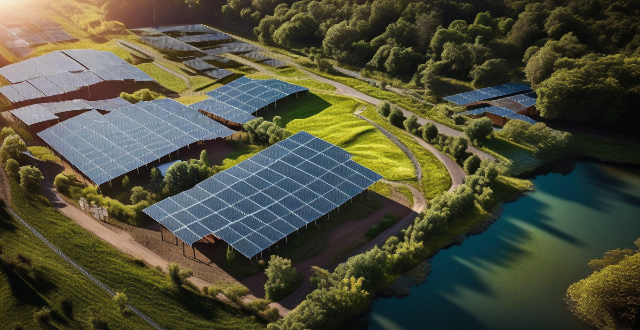
How does solar energy work ?
Solar energy is generated through the use of solar panels containing photovoltaic cells, which convert sunlight into electricity via the photovoltaic effect. This process involves absorbing sunlight, exciting electrons to a higher energy level, generating an electrical current, collecting it, and converting it into usable AC electricity. Solar energy is renewable, sustainable, cost-effective, and environmentally friendly, but its effectiveness can be reduced by weather conditions, and it requires additional equipment for energy storage. Despite high upfront costs, solar energy systems can lead to long-term savings on utility bills.
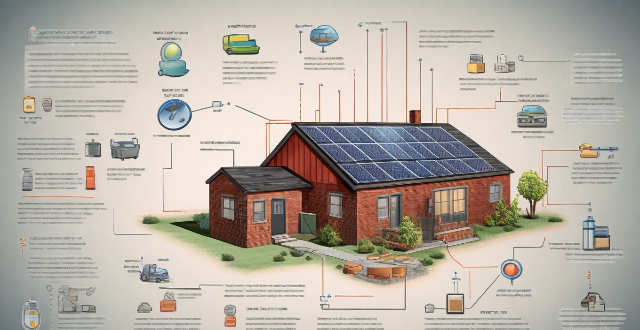
Is it possible to run my entire house on solar power alone ?
The possibility of powering an entire household with solar energy alone is influenced by various factors, including energy consumption habits, geographic location, available roof space, and system efficiency. Financial considerations, net metering policies, and maintenance requirements also play a role in determining the feasibility of such a setup. Homeowners should assess these elements and consider professional consultation to ascertain if their home can run solely on solar power.
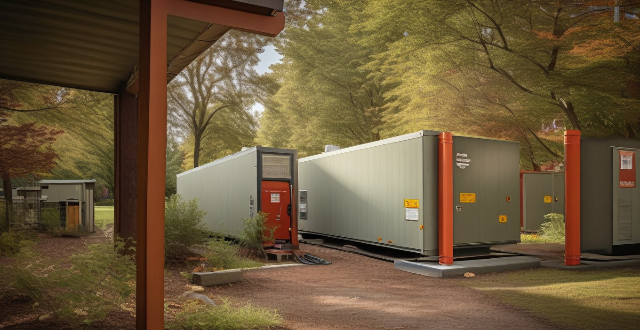
How do solar panels impact electricity bills in the long run ?
Solar panels can significantly reduce electricity bills over the long term by reducing energy consumption, increasing self-sufficiency, and taking advantage of net metering programs. While the initial cost of installation can be high, lower operating costs, federal tax credits, and increased home value can help offset these expenses. Additionally, solar panels offer environmental benefits such as reduced carbon emissions and support for renewable energy infrastructure.

Are there any government incentives for installing solar panels ?
Governments worldwide offer various incentives to encourage the adoption of solar energy, including tax credits and deductions, rebates, net metering, feed-in tariffs, grants, low-interest loans, green energy certificates, and solar rights laws. These incentives aim to reduce the upfront costs of installing solar panels and make renewable energy more accessible and financially viable for homeowners and businesses. However, eligibility requirements and application processes can vary, so it's essential to consult local professionals or agencies for specific information.

What are the benefits of using solar power ?
Solar power is a renewable and sustainable energy source that offers numerous benefits. It can be cost-effective in the long run, environmentally friendly, promotes energy independence, has low maintenance costs, versatile applications, creates jobs, provides government incentives, increases property value, and enhances energy security. As technology advances and awareness grows about renewable energy sources like solar power, its adoption is expected to continue rising worldwide.

How does wind energy compare to solar energy ?
Wind energy and solar energy are both renewable sources of energy that have gained popularity in recent years. Wind turbines can generate electricity with high efficiency and low maintenance cost, while solar panels have a low initial cost and long lifespan. However, wind turbines can create noise pollution and have limited availability, while solar panels rely on sunlight and require a large amount of land. Both sources have their advantages and disadvantages, making them suitable for different applications.

Can you explain the difference between photovoltaic and solar thermal energy ?
Solar energy harnesses the power of the sun to generate electricity or heat. Two major categories are photovoltaic (PV) and solar thermal systems, which differ in their conversion processes, applications, storage capabilities, efficiencies, and costs. PV systems convert sunlight directly into electricity using semiconductor materials like silicon, while solar thermal systems capture the sun's heat to warm a fluid, usually water or air, which then provides heat or generates electricity. PV is mainly used for generating electricity, and solar thermal is used for both heating and electricity generation. Solar thermal systems can more readily incorporate thermal storage solutions, while PV systems typically require battery storage for off-grid applications. The cost and affordability depend on the specific application and location, with PV becoming increasingly competitive in recent years.
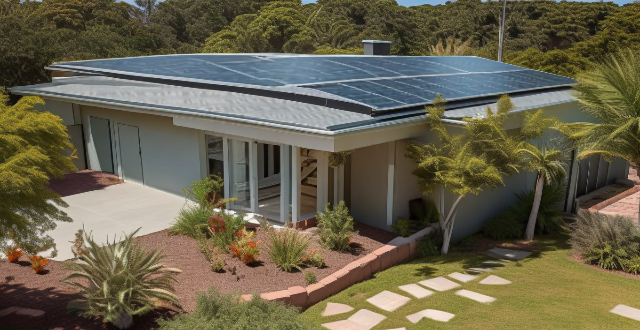
How much does it cost to install a solar panel system ?
The cost of installing a solar panel system varies depending on the size, type of panels used, and installation location. Small residential systems typically range from $15,000 to $25,000 before tax credits or incentives, while medium to large residential systems can cost between $25,000 to $40,000. Commercial systems can vary greatly in size and cost. Monocrystalline silicon panels are the most efficient and expensive option, while thin-film solar panels are the least expensive but also less efficient. Rooftop installations are generally more expensive than ground-mounted installations. Additional costs include inverters, batteries, and installation fees. It is important to consult with a reputable solar installer for an accurate estimate based on specific needs and circumstances.

How does solar power work and is it a viable option for homes ?
Solar power is generated through solar panels made of silicon cells that convert sunlight into direct current (DC) electricity. This process involves absorption of light, conversion to DC, conversion to alternating current (AC), and distribution throughout a home or business. Solar power is a viable option for homes due to its renewable nature, cost savings, environmental benefits, and government incentives. However, weather conditions, storage options, and upfront costs should also be considered before deciding if solar power is the right choice for your home.

What are the advantages of using solar panels for residential and commercial purposes ?
Solar panels offer reduced energy costs, environmental benefits, increased property value, energy independence, low maintenance, and government incentives for residential and commercial use.
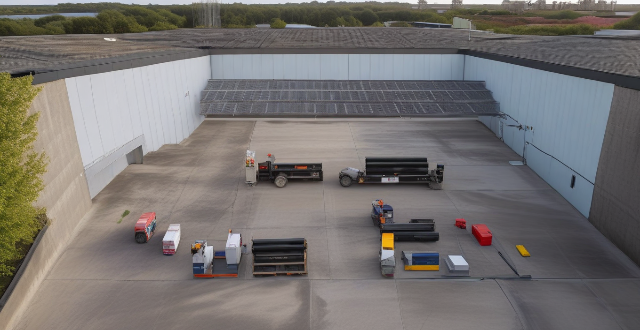
How can you maintain a lead-acid battery to extend its lifespan ?
Lead-acid batteries are commonly used in vehicles, UPS, and solar storage systems. To ensure their longevity, it's essential to maintain them properly. Here's how you can extend the lifespan of your lead-acid battery: prevent overcharging, avoid deep discharges, maintain proper fluid levels, keep the battery clean, and store properly when not in use. By following these maintenance tips, you can significantly extend the lifespan of your lead-acid battery and ensure reliable performance for years to come.

How do celebrities maintain their mental health ?
Celebrities maintain their mental health by seeking professional help, practicing mindfulness, staying connected with loved ones, engaging in hobbies, maintaining a healthy lifestyle, setting boundaries, and taking breaks.

How does solar power generation work and is it a viable option for residential use ?
Solar power generation involves converting sunlight into electricity using solar panels, which are made up of photovoltaic cells. The process includes generating electricity, converting it from DC to AC, net metering, and battery storage. Solar power is a viable option for residential use due to its cost-effectiveness, energy independence, environmental benefits, increased property value, and technological advancements.

How do climate models account for factors such as ocean currents, atmospheric pressure, and solar radiation ?
Climate models are complex mathematical representations of the Earth's climate system, designed to simulate and understand the behavior of various components such as ocean currents, atmospheric pressure, and solar radiation. These factors play a crucial role in shaping our planet's climate, and their interactions are essential for accurate climate predictions. Ocean currents act as conveyor belts for heat, moving it from the equator towards the poles and helping to regulate global temperatures. Climate models use fluid dynamics equations to simulate the movement of water in the oceans, and observations from satellites and buoys are integrated into models to improve the accuracy of ocean current simulations. Atmospheric pressure influences weather patterns and is a key driver of wind systems around the globe. Numerical Weather Prediction (NWP) Models solve the Navier-Stokes equations to simulate atmospheric pressure changes over time, while Global Climate Models (GCMs) incorporate principles of thermodynamics and fluid dynamics to predict how pressure variations will impact climate. Solar radiation provides the primary energy source that drives Earth's climate system. Radiative Transfer Models (RTMs) calculate how solar radiation interacts with the atmosphere and Earth's surface, while Spectral Irradiance Models estimate the amount of solar energy reaching Earth based on sunspot activity and other solar cycles. Coupled Models combine RTMs with atmospheric and oceanic models to understand the full impact of solar radiation on climate.
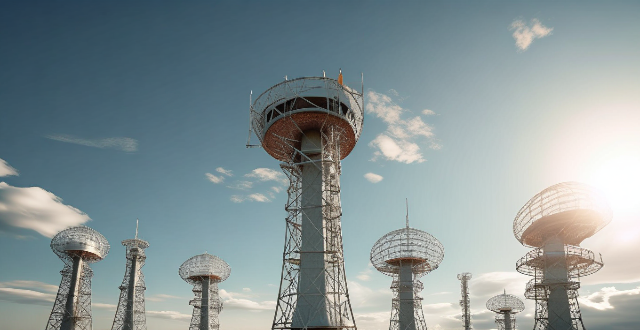
Can solar flares cause communication interference ?
Solar flares, intense bursts of radiation from the sun's atmosphere, can disrupt communication systems on Earth. This includes shortwave radio signals, satellite communications, and other terrestrial networks. The effects range from signal quality disruption and frequency deviation to satellite link disruptions, GPS accuracy issues, and even physical damage to satellite hardware. While these impacts vary, organizations involved in critical communication operations must be aware of the risks and implement mitigation strategies to minimize potential disruptions.

How can women maintain good manners while networking in a professional setting ?
This article discusses tips on how women can maintain good manners while networking in a professional setting, including dressing appropriately, being polite and respectful, using positive body language, following up after meetings, being mindful of personal space, and avoiding gossiping or negative talk. Maintaining good manners is crucial for building strong relationships and advancing one's career.
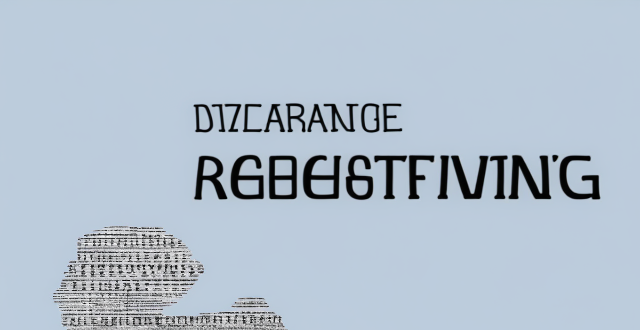
How can students maintain academic integrity in their studies ?
The text discusses the importance of maintaining academic integrity in education and outlines several ways for students to do so. It emphasizes understanding the concept of academic integrity, adhering to school policies, citing sources properly, avoiding plagiarism, being honest in assessments, respecting intellectual property rights, maintaining confidentiality, reporting incidents of misconduct, and seeking help when needed. The text concludes that maintaining academic integrity is crucial for students to achieve success in their academic pursuits and beyond.

How do celebrities maintain and staff their large mansions ?
Celebrities own sprawling mansions that require a lot of effort to maintain. To keep these luxurious homes in top condition, celebrities rely on a team of dedicated staff members, including property managers, housekeepers, grounds maintenance workers, security personnel, chefs, and other specialized staff. By hiring a dedicated team of professionals, celebrities can ensure that their luxurious homes remain comfortable, safe, and well-maintained at all times.

How can women maintain a healthy weight through proper nutrition ?
Maintaining a healthy weight is crucial for overall well-being, and proper nutrition plays a vital role in achieving and maintaining it. Women can maintain a healthy weight through proper nutrition by following these tips: 1. Eat a balanced diet consisting of whole grains, fruits, vegetables, lean proteins, and healthy fats. 2. Control portion sizes to prevent overeating. 3. Eat regularly throughout the day to maintain consistent blood sugar levels and prevent overeating. 4. Drink plenty of water to stay hydrated and prevent overeating due to hunger pangs caused by dehydration. 5. Practice mindful eating by being present while you eat and paying attention to your hunger cues rather than relying on external factors like TV or social media to determine when you're full.

How often should I wash my hands to maintain good hygiene ?
Washing hands is an essential part of maintaining good hygiene. It helps prevent the spread of germs and diseases, especially during these times of COVID-19. Here are some tips on how often you should wash your hands: before eating or preparing food, after using the bathroom, after coughing/sneezing/blowing your nose, before touching someone else's face, and after handling dirty objects. It's important to wash your hands frequently throughout the day to maintain good hygiene and prevent the spread of germs and diseases.

How often should I replace my iPhone case to maintain its protective qualities ?
The article discusses the importance of replacing iPhone cases to maintain their protective qualities and suggests different intervals for various types of cases based on signs of wear and tear.

How can I maintain proper pacing during a race or long run ?
Maintaining proper pacing is crucial for achieving your best performance in a race or long run. To do this, set a realistic goal time based on your training and past performances. Start the race at a slower pace than your goal pace to warm up your muscles and avoid starting too fast. Use a running watch or app to track your pace and distance during the race, and focus on your breathing to maintain a steady rhythm. Stay hydrated by drinking water or sports drinks regularly, and adjust your pace as needed if you feel like you're running too fast or too slow. Practice pacing in training so that it becomes second nature during races. By following these tips, you can achieve your best performance while listening to your body and adjusting your pace as needed.

How can I improve my credit score and maintain good credit history ?
Maintaining a good credit score is vital for securing loans, mortgages, and even some jobs. To improve your credit score and maintain good credit history, consider the following tips: 1. Pay bills on time to avoid late payments that can significantly impact your credit score. 2. Avoid defaulting on loans by contacting the lender to discuss options if you're struggling to make payments. 3. Keep balances low and increase credit limits to lower your utilization rate. 4. Keep old accounts open and space out applications for new credit to maintain a healthy length of credit history. 5. Diversify your types of accounts to show that you can handle different types of credit responsibly. 6. Limit hard inquiries and apply for credit only when necessary. 7. Check your credit report regularly to ensure there are no errors or fraudulent activity dragging down your score. 8. Use credit wisely and monitor your credit score to keep an eye on progress. 9. Educate yourself on how FICO scores work and the factors that influence them to make more informed financial decisions. By following these guidelines, you can establish and maintain a strong credit profile that will serve you well in your financial life.

How can I maintain a tidy home with quick daily organizing habits ?
Maintaining a tidy home requires consistent effort and daily habits. Here are some quick daily organizing habits that can help you maintain a tidy home: 1. Make your bed every morning to give a sense of accomplishment and motivate you to keep the rest of your home tidy. 2. Do a load of laundry every day to prevent a pile-up of dirty clothes and ensure that you always have clean clothes available. 3. Declutter for five minutes every day to prevent clutter from building up over time. 4. Use storage solutions like baskets, shelves, and drawer dividers to keep your belongings organized and in their place. 5. Clean as you go by wiping down surfaces after use and putting things away immediately after use. 6. Create a cleaning schedule that outlines what needs to be cleaned each day, week, and month. 7. Encourage everyone in your household to participate in maintaining a tidy home by assigning age-appropriate tasks to children and making sure everyone understands their responsibilities.

How much exercise do I need to maintain good cardiovascular health ?
Maintaining good cardiovascular health requires regular exercise, with the American Heart Association recommending at least 150 minutes of moderate-intensity aerobic activity or 75 minutes of vigorous-intensity aerobic activity each week, along with two or more days of muscle-strengthening activities. The amount of exercise needed may vary depending on individual needs and fitness level, and other lifestyle factors such as diet, stress management, sleep, and avoiding smoking and excessive alcohol consumption can also contribute to good cardiovascular health.

How do I maintain a polished appearance with minimal makeup effort ?
Maintaining a polished appearance with minimal makeup effort is achievable by focusing on skincare, adopting a minimalist makeup routine, maintaining good grooming habits, and taking care of overall well-being. Skincare is key, with cleansing, moisturizing, sunscreen application, regular exfoliation, and investing in good serums being essential steps. The minimalist makeup routine includes primer, tinted moisturizer or light foundation, concealer, brow grooming, blush or bronzer, mascara, and tinted lip balm or neutral lipstick. Grooming involves keeping nails neat and clean and maintaining hairstyle health. Lifestyle habits like hydration, sleep, and a balanced diet also play a crucial role in maintaining a polished appearance.